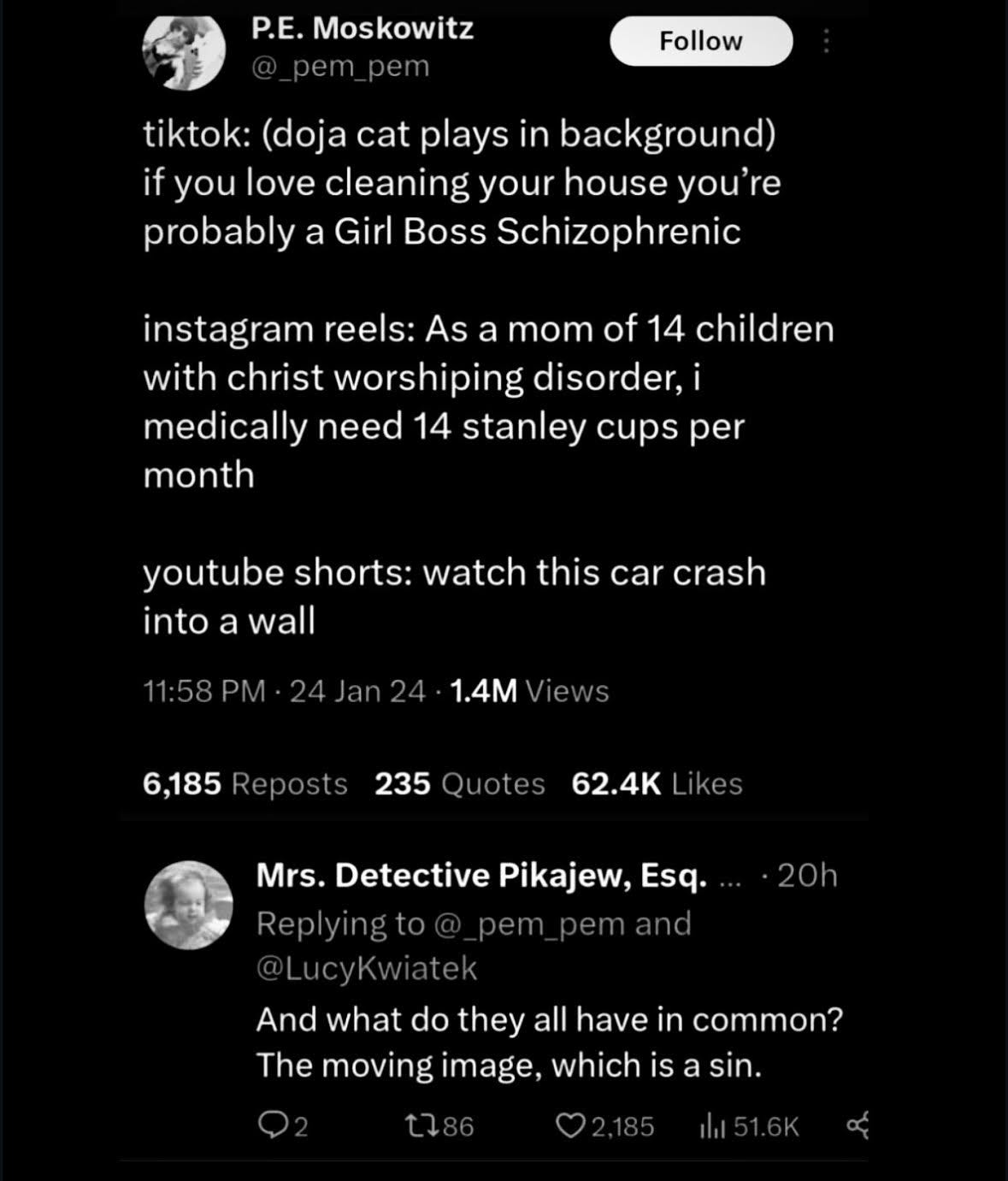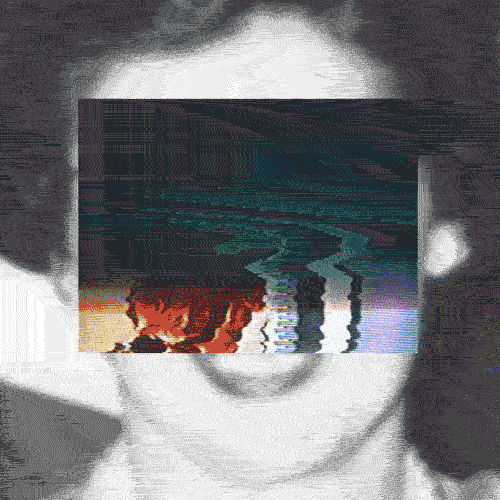What will the future think of us when they sift through the scraps we’ve left behind?
Unlike the sacred carvings or carefully kept scrolls of ancient civilizations, our artifacts may well be algorithmically generated trends, fleeting moments of fame, and endless data logs of our collective noise.
If history is written by the victors, then who wins in a world where the prize is measured in clicks, views, and the fleeting satisfaction of going viral?
The phrase ‘the moving image is a sin’ might strike us now as an antiquated joke, a relic of a ‘less advanced’ past. But perhaps it holds a deeper, symbolic truth we’ve overlooked. A reminder of how easily we dismiss the wisdom of those who came before us.
Early religious and philosophical traditions warned against certain images or representations - Not because they feared creativity but because they feared distraction. In some cultures, it was believed that images could captivate the soul, pulling it away from the divine, the still, and the real. They worried that an over-reliance on illusion could distance us from deeper truths.
Maybe we shouldn’t be so quick to dismiss that fear after all.
The “moving image” of today - our endless scrolling, our curated digital selves - often pulls us further from our Selves, fragmenting our attention and turning us into mere spectators of our own lives. But it’s not the technology itself that’s the sin.
Moving images are not inherently demonic, nor is AI or any other tool we’ve created. The question is how we choose to use them. Do we let these advancements serve us—helping to build a richer, more connected world—or do we serve them, bowing our heads in submission to algorithms, dopamine hits, and performative trends?
The future is marching forward, whether we’re ready for it or not. Demonizing AI or any new technology might feel like the moral high ground, but isn’t it just another form of fear? Look at history. People once panicked over the photograph, the television, the email. We sound no different now.
The question isn’t whether these tools are good or bad. It’s how we choose to wield them.
AI isn’t inherently destructive. In the hands of the unimaginative, it might churn out noise, mediocrity, and repetition. But in the hands of those who seek meaning, who carry forward the threads of ancient wisdom, it could scan and preserve lost texts, find connections between scattered truths, and bring myths and meaning back into our fractured lives.
It’s not the tool itself; it’s the soul behind it.
Imagine if the artifacts of this era weren’t just petty arguments and fleeting trends but a synthesis of what came before and what’s yet to come. Ancient wisdom and cutting-edge thought, woven together into something enduring.
Imagine us using these tools not to squawk about their dangers but to tell better stories, rediscover ritual, and create meaning from the vast expanse of human experience. The tools are here. The only question is whether we’re brave enough to remember the importance of myth, meaning, and connection in the first place.
The tragedy isn’t the existence of technology. It’s our willingness to let it dull us, to let it lull us into forgetting who we are and what we’re capable of.
Future civilizations may look back on us and wonder how a generation with access to endless information and revolutionary technological advancements chose, instead, to squander them on rage clicks, surface-level debates, and performative outrage.
The potential is there, waiting. The question is whether we’ll choose to use it - or let it use us.
Technology doesn’t determine our legacy. We do.
The world doesn’t need another mindless scroll or another empty algorithmic trend. It needs a deeper, braver reckoning with who we are and what we could become. It needs us to stop staring at the shadows on the wall and to turn, instead, toward the light.
The question is not just how we’ll be remembered but how we’re living right now. The future will judge us, yes, but the real tragedy would be if we forgot to judge ourselves.
If we failed to ask, in this sea of content, whether we’re creating a life or merely consuming one.
Why not check out the newest episode of the Back from the Borderline podcast?
If we want to truly understand where we’re heading, we must first understand where we’ve been. That’s exactly what I dive into in the newest episode of my podcast. This episode marks the beginning of Mind Unveiled, a six-part series tracing the fascinating origins of depth psychology and its evolution over time.
In this first episode, we go back to the roots of modern psychology by exploring the groundbreaking and deeply controversial theories of Sigmund Freud.
Freud’s ideas about the unconscious mind, defense mechanisms, and inner conflict forever changed how we think about ourselves. But his work wasn’t without flaws. Much of his theory was deeply personal, shaped by his own habits, cultural biases, and even his struggles with addiction. Freud’s legacy is a complex mix of brilliance and imperfection, and in this episode, we uncover both.
By critically examining Freud’s contributions, we not only expose the cracks in his ideas but also celebrate how his work became the foundation of modern psychology. Understanding these beginnings allows us to see how early psychological theories still influence the tools we use to navigate our minds today.
Part two will explore Carl Jung, who took Freud’s ideas into bold new territory with his concepts of archetypes and the collective unconscious. I’ll be releasing the subsequent episodes of this series over the coming weeks.
To receive alerts each time a new episode drops, make sure you follow the podcast on your favorite podcast player by clicking here.






The chose is ours how to use this reality-bending technology. Most choose to use it as an escape from doing their life's work, instead of as a tool to share their life's work and give it meaning. I had been an addict of mindless scrolling myself, but I have chosen to take a new path and use the social platforms for sharing my life's work. Soul intention + tech = manifestation.
Love this, and I can't wait for your new episodes. It's a great point to consider what we value as a collective in our society and how the need to be validated through "likes" or the tendency to numb ourselves through distraction can keep us further disconnected from our soul's purpose.